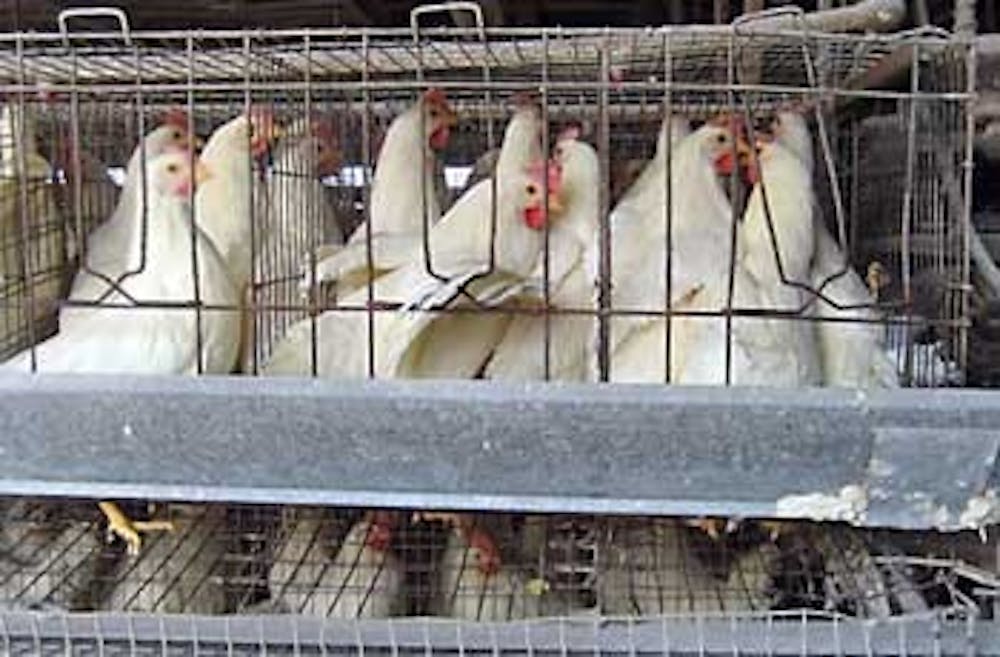For UNC students breakfast egg options are no longer just between scrambled or fried.
This fall" Carolina Dining Services began offering students the option of cage-free eggs in their omelets.
Cage-free eggs are considered a more ethical option by many animal rights activists because they come from hens that do not spend their entire lives in battery cages.
""In battery cages all the animal instincts are frustrated"" said Loren Hart, UNC alumnus and animal rights activist.
They can't stretch their wings"" they have their beaks cut. These practices cause an extreme amount of suffering to hens.""
Hart and senior Kori Crosson were among those who spoke with dining services about making the switch to cage-free eggs.
Crosson first contacted Scott Myers" director of food and vending for dining services about cage-free eggs last fall.
In February Crosson and Myers visited caged hen farms and cage-free farms in Nashville N.C." about an hour east of Chapel Hill.
""There's just thousands of hens who are sometimes five to a cage and had no room to spread their wings"" Crosson said.
It made me realize how bad it was — that this is how the animals have to live.""
Crosson added that the caged hens were living in conditions where it seemed that they were no longer living creatures.
""When you confine a being in a cage so they can't even move and you're mass producing them and mass killing them"" you're not even treating them like animals anymore. We're creating little machines.""
Myers said he had not been aware of the conditions of caged hens until Crosson contacted him about it.
After he visited the farms" dining services worked cage-free eggs into some of their meals and they expanded the option to the omelet bars he said.
Signs posted in the dining halls inform students that cage-free eggs are now available Myers said.
The majority of dining services' eggs still come from farms that use battery cages.
Myers said cost issues are a concern" as each cage-free egg costs about two cents more than non-cage-free eggs.
""What dining services is looking for is an interest"" Crosson said.
If they request cage-free eggs and dining services sees an interest in that then they're more likely to make a switch.""
Hart said many other universities have already made the switch to cage-free eggs" including Harvard University the University of Minnesota and the University of Wisconsin-Madison.
Battery cages for hens will be illegal in the European Union starting in 2012" and there is a proposed law in California that would forbid the practice there as well.
""I don't think anyone is this passionate about being cruel to animals"" Crosson said. I think they just care about money more than anything else.""
Contact the University Editor at udesk@unc.edu.
Dining offers cage-free eggs

Hens living in Nashville" N.C. spend their lives in cages with little room to move around. Cage-free farming is considered more humane.


